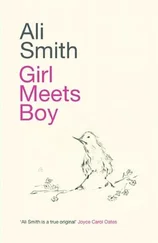Barto.
Cause if this boy could hear me I’d tell him: we all need a brother or a friend and at some point you need a horse too: I had 2 brothers and admittedly was more friends in the end with my horse: but even better than brothers, and even than horse, my friend Barto, whom I met after fishing barefoot out on the stones in the river on my 12th birthday, and though usually I caught not much, that day the fish had been opening their mouths at the surface of the water as if congratulating me on having been born and I had caught 7 altogether, 3 fat carp with their whiskers trailing and the rest were little and middle-sized perch, the black stripes over their gold: I knotted the lines together and hung them over my shoulder and left my brothers to their displeasure (they’d caught less) and was walking home through the cow parsley along the foot of a tall wall when a voice called down to me.
I once caught a catfish, the voice said, that was so big I couldn’t land it. In fact it almost rivered me.
I liked the word rivered so I looked up: it was a boy leaning over the top of the wall.
I could feel from the mouth and the pull of it, he said, that it was a lot bigger than you from head to foot, and though you’re not that tall yourself it’s quite long for a fish, no?
His cap was new: he was wearing a finely embroidered jacket, I saw its quality though the wall was more than 2 men high.
So I couldn’t land it, he said. Cause it was a lot bigger than me too, and there was only me and the catfish, no one else, and I couldn’t hold it and bring it in myself. So I cut my line and I let it escape me, I had to. But it’s the best fish I’ve ever caught, that fish I didn’t catch, cause it’s a fish that will always be with me now and never be eaten, it’ll never die, that fish I’ll never land. I see you’ve done well today. Any chance you’d give me one of your hundred fish?
Catch your own fish, I said.
Well, I would, but you’ve taken so many it wouldn’t be fair to the river, he said.
How did you get up there? I said.
I climbed, he said. I’m more monkey than man. Coming up? Here.
He leaned over the top and held out a hand but he was so far above me and his gesture so charming that I burst out laughing: I untied the smallest of the perch, separated it from its brothers and laid it in the grass.
A piece of gold for making me laugh, I shouted up.
I hoisted my other fish and my stick back on my shoulder and waved my hand: but when I’d got a little along the path the boy called me back.
Can’t you throw that fish you gave me up here to me? he said. I can’t reach it from here.
Don’t be lazy, I said. Come down and get it.
Frightened you can’t throw a fish as well as you can catch a fish? he said.
I’d happily throw it, but I’m not meant to misuse my hands, I said, cause I plan to earn my living by them, and throwing, as the masters say in all the books, could tire or hurt them.
Scared you’ll miss, he said.
You don’t know it yet, I said, but you’re besmirching an expert aim.
Oh, an expert aim, he said.
I put down my things and picked up the little perch.
Hold still, I said.
I will, he said.
I aimed it. The boy turned with languor and watched both cap and fish on their way down the other side of the wall.
There’ll be trouble now, he said. I’m supposed to keep it clean. What kind of fish was it you knocked it off with?
A perch, I said.
He made a face.
Gutterfish, he said. Mudfish. Haven’t you anything tastier?
Come down and we’ll go to the river, I said. I’ll lend you my stick. You can catch yourself your own taste in fish. And if what you hook’s as big as the one you caught before I’ll help you.
He looked pleased when I said this: then his face went miserable.
Ah, I can’t, he said.
Why not? I said.
I’m not allowed near the river, he said. Not in these clothes.
Take them off, I said. We’ll hide them somewhere. They’ll be fine till we get back.
But then I worried for a moment in case I’d be expected to lose my own clothes if the boy did come down and remove his, cause I was now become my new self in the world, which involved taking strict pains to preserve what I appeared: though something in me also found this idea a good one, but in any case in the end there was no divesting of any sort, on this day at least, cause the boy called down –
I can’t. These are clothes I have to wear. And I’ve got to go in a minute. I have to attend celebrations. It’s my birthday.
Mine too! I said.
Really? he said.
Happy birthday, I said.
And to you, he said.
Years later he’d tell me it was my feet being bare on the path as I walked that he was most taken with, and it’d be some time, a long time, into our friendship before he’d tell me it wasn’t just cause he was in his best new clothes that he wouldn’t come that day to the river, it was that his mother didn’t like him going near rivers cause of the brother that had drowned before he was born, and he had been named for the brother, the others were all sisters.
We met whenever his family came to town, though increasingly in secret cause he was from a family which would have had little to do with mine, and we went often to the river so he could doubly defy his mother, first by going at all and second by going without her knowledge: but he never went by himself in case the river decided it wanted to claim this other brother too: though truth be told I didn’t know this about him until we were both much older.
On our first shared birthday he showed me all the things you can do if you’re balanced on the top of a very tall wall: you can hang yourself off it by nothing but your hands, then by nothing but one hand: you can walk along the top of it like a cat or a rope-walking gypsy performing: you can dance: you can run along it like a squirrel or stand on it on only one leg like a heron and do little jumps: you can tuck the other leg up behind your back or kick it openly back and fore while keeping your balance: finally you can jump off the wall up into the air with your arms out wide like a heron taking flight.
He demonstrated all these things except the last: of the last he only spread his arms like wings to show me, as if about to.
Don’t, I shouted.
He barked a laugh full of the daring of his dancing: he did one last leap in the air and landed square and safe sitting down with a thump on the top of the wall, his arms still wide: he swung his legs at me like a figure in a painting sitting half in and half out, legs over the woodframe.
You’re a boy afraid of a wall, he called down at me.
And you’re a boy with no idea how wrong he is, I called back at him. You’ll need to know me better. And to know I’m afraid of nothing. And my father is a maker of walls, among other things, and if you can kick your legs like you’re doing against one and nothing chips off it then you’re lucky, it’s a pretty good one. But that’s far too high a wall to jump off. Any fool can calculate that.
Exactly, and I’m no fool, he said and then stood up again as if to do the jump and made me laugh again. Instead of jumping he bowed as low as was safe to.
Bartolommeo Garganelli is very pleased, on this day auspicious to both of us, to make your quaintances, he said.
You might talk as fancy as your clothes, I said. But even a common fisher of gutterfish knows you’ve just got that last word wrong.
1 quaintance. 2 quaintances, he said. And I’ve met more than 2, I’ve met 3 of you. Expert fisher. Expert fish-thrower. Expert in walls and their trajectories.
If you’d care to come down, I said, I’ll consider introducing you to the rest of me.
Here I am again: me and a boy and a wall.
Читать дальше












